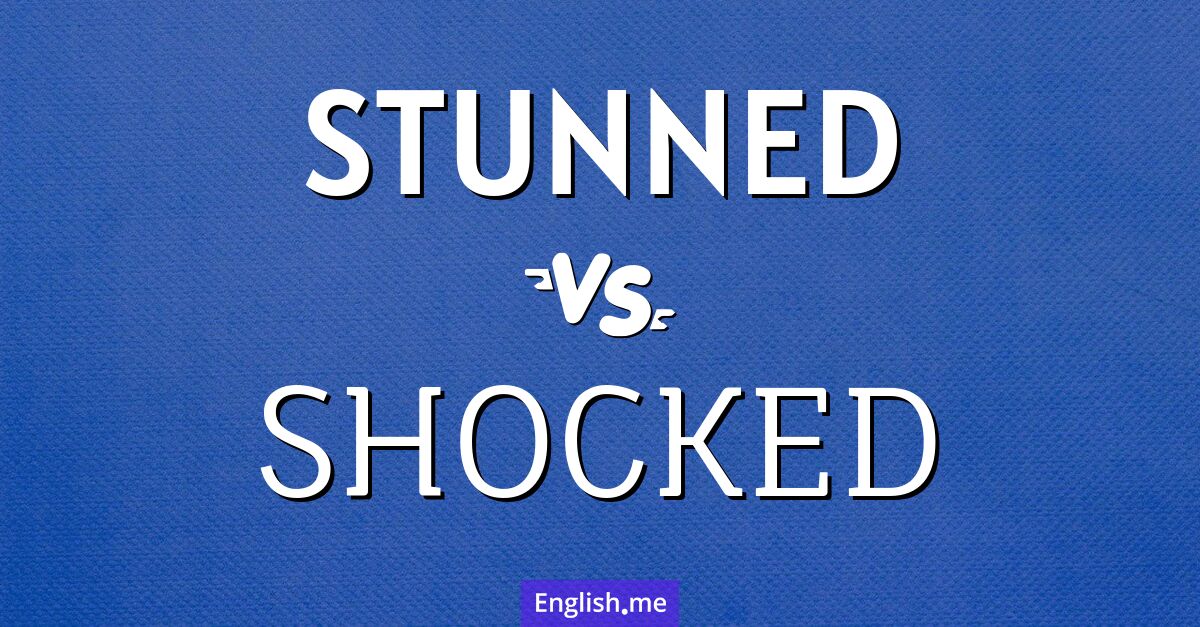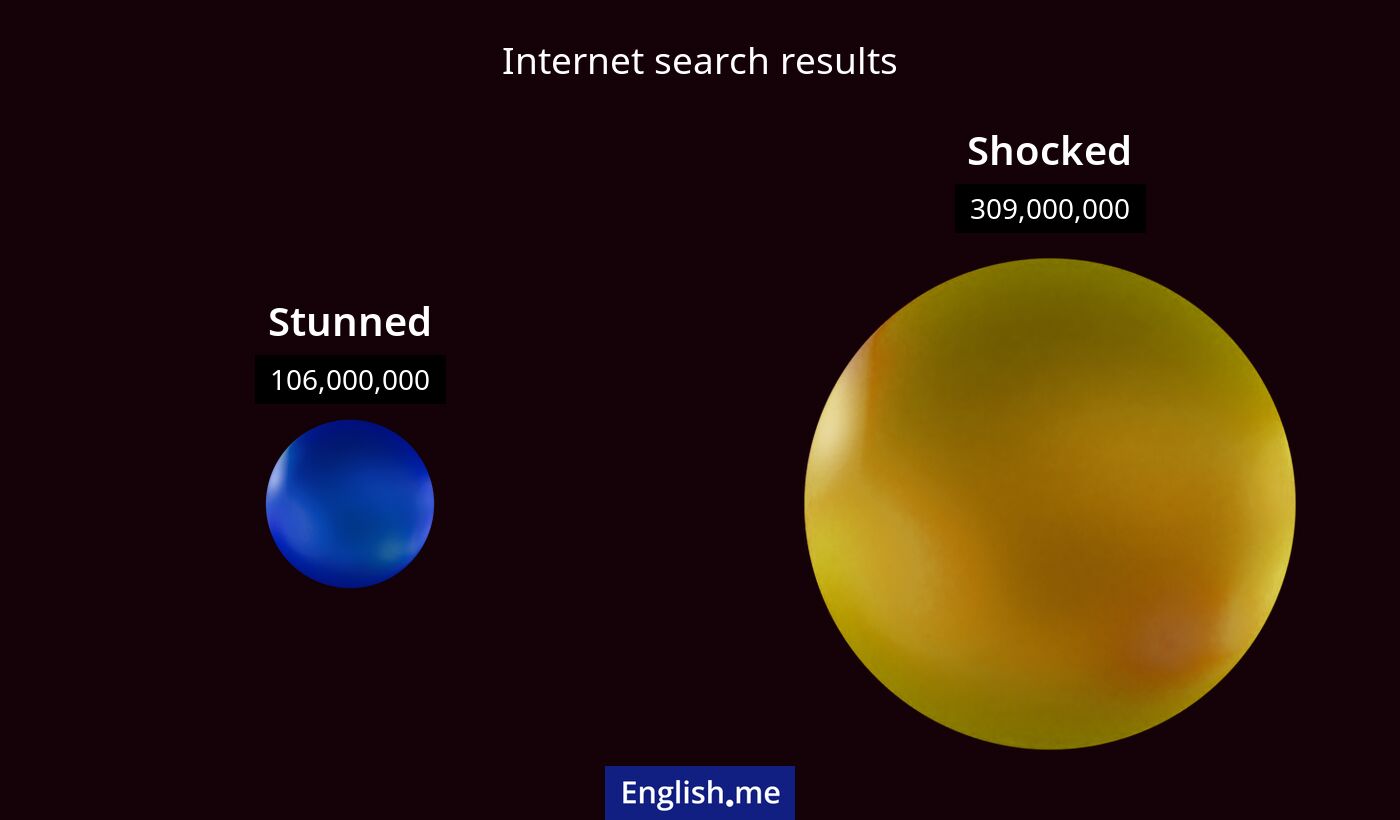"Stunned" vs. "shocked": a linguistic jolt
Reviewed and edited by  Anwar Kareem 02/10/2024, 08:00
Anwar Kareem 02/10/2024, 08:00
English.me team member

 What is similar?
What is similar?
Both "stunned" and "shocked" describe a strong emotional response to unexpected news or events, often implying a state of disbelief or surprise.
 What is different?
What is different?
"Stunned" often implies temporary immobility or silence due to surprise, whereas "shocked" suggests emotional disturbance with possible distress or trauma.
 Which one is more common?
Which one is more common?

 Examples of usage
Examples of usage
Stunned- She was stunned by the news of her promotion, unable to speak.
- He stood stunned for a moment, trying to process what had happened.
- The announcement left the audience shocked and murmuring.
- I was shocked to learn about the tragic accident.

 English
English español
español française
française italiano
italiano deutsche
deutsche 日本語
日本語 polski
polski česky
česky svenska
svenska Türkçe
Türkçe Nederlands
Nederlands